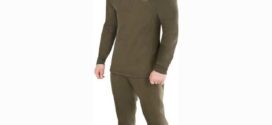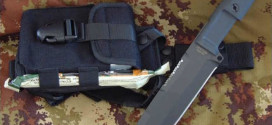The market is literally overflowing with various types of lighting fixtures. But when it comes to a powerful flashlight, it is understood that the product is necessary for operation in a non-standard environment, as a rule, far from the "benefits of civilization" and in difficult conditions. For these purposes, models based on semiconductors are more suitable, which are superior in many respects to other autonomous light sources. With what you need to consider when choosing a rechargeable LED flashlight, the author invites the reader to deal with him.
Before evaluating the feasibility of acquiring a particular model, you should decide what, in fact, you need a powerful flashlight for, especially an LED one. The specifics of the use of such products is the most diverse, so they are conventionally divided into tactical and search.
The former are characterized by a wide viewing angle of the terrain, but with a limited range (up to 500 m). The second group of LED lights is distinguished by a concentrated, powerful "long-range" beam (up to 1.5 km). Based on this, it is necessary to highlight those characteristics that are most important.
Content
Structural strength
There are two versions of lamp housings - plastic and metal-based; mainly duralumin (with anodizing). According to experts, if the flashlight is mainly used in extreme conditions, the second option should be chosen. Whatever the manufacturers claim, the metal is still more reliable than any polymer. Of course, if we are not talking about the latest technologies and developments in the military-industrial complex. But plastics of the category "especially durable" are not yet used for the manufacture of LED lights, even if advertising claims the opposite.
Assembly Security
From what? Protection is meant not from mechanical damage, but from dust and moisture that can penetrate inside. The presence of the IP50 index in the marking indicates that dirt will not accumulate on the structural elements, but such an LED flashlight is not immune from liquid droplets entering the body. If the moisture protection of the product is of decisive importance, then you should choose models with an IP rating of 67 to 69 .
The last figures indicate the time of allowable stay of the product in water and at a certain depth:
- 7 - < 1 m for several minutes;
- 8 – ˃ 1 m and during prolonged immersion;
- 9 - indefinite time at great depths (the highest degree of protection for LED lights).
Reflector Features
- A smooth reflector gives a directional beam. The downside is that there is a sharp distinction between the level of illumination "along the axis" and in the area of side illumination.
- Corrugated ("crumpled") reflector provides uniform illumination throughout the viewing area. Minus - reduced range.
Radiation spectrum
All LED (and not only) lights are divided into models of "warm" and "cold" glow. Much depends on the user's vision. Therefore, this paragraph is only a short explanation, since the choice is mainly determined by personal preferences.
The light "warm" (similar to "Ilyich's light bulb") is more familiar to our eyes, so the surrounding area will be visually perceived with little or no distortion. Cold light (the same fluorescent lamps) is somewhat disorienting, as all objects acquire a different, unusual shade.
Number of LEDs
If the determining criterion for selection is "range", then it is better to buy a flashlight assembled on one large p / n device. In other cases, it is advisable to focus on LED assemblies mounted on a common panel. Although such lights do not shine so far, they are distinguished by a greater brightness of the beam.
Handle version
Some models don't have it at all. Its function is performed by the body. But if there is a handle, you need to evaluate not only the convenience of using such a flashlight, but also the possibility of its temporary fastening somewhere or on something.
Battery charging method
It is clear with the traditional - through a special device. However, not everyone knows that some LED lights have a so-called "dynamo recharging". If the product is purchased for frequent use in places where there is no access to the electric / network - the best option.
What else to look for when choosing a flashlight
- Ease of use. This is the weight of the LED lamp, and the possibility of its attachment. For example, on the head with the help of a special device, a shoulder strap. Is it included in the kit or do you have to buy it separately?
- Battery type. Even they have their own lifespan. Is there a sale in this locality, is this product in short supply or not, how can it be replaced? It is advisable to clarify all such questions immediately, even in the store.
- Possibilities for brightness control. It is on this point that seemingly identical-looking LED lights often differ. The best solution would be to choose a product with adjustment. This makes it easy to turn a search model into a tactical one ( for a hunter , for example), and vice versa.
- Structural disassembly. Otherwise, you can not even think about repairing the LED flashlight. In case of any damage - immediately to the landfill.
Hello, I am Alexander, the mastermind behind the blog.
In terms of career and free time, I connected my life with the forest. How else, when you live in Karelia! In this blog, I am responsible for the hunting, hiking and equipment sections. Welcome to my world!
 Survival Lessons Tips for the survivalist, fisherman and hunter
Survival Lessons Tips for the survivalist, fisherman and hunter





